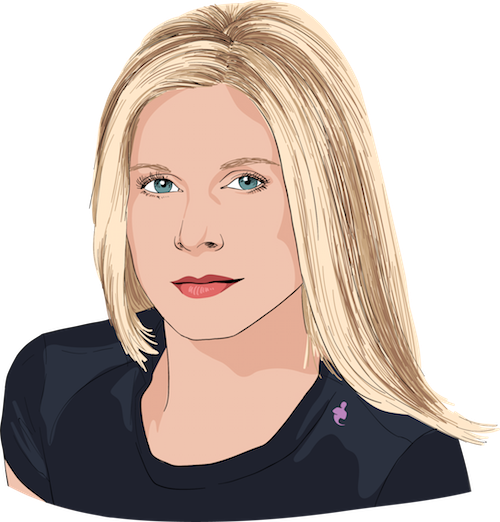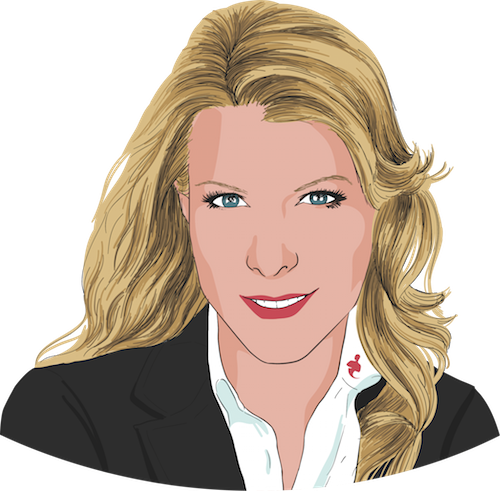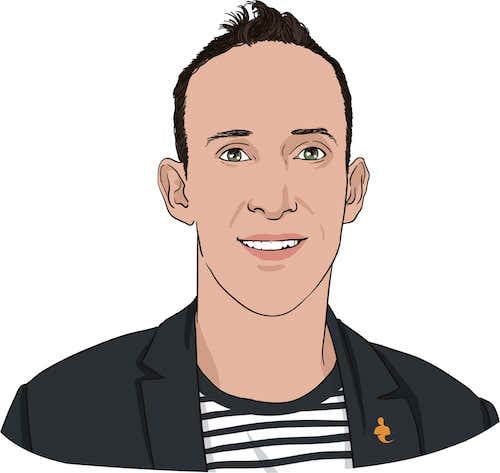Looking to blaze into a new industry? We asked some of the world’s smartest business people and Advisors in The Oracles for their best tips for breaking into a new field, from tech to real estate to day trading.
StartupNation exclusive savings on the Dell products that power your business: Save Now
Get in the game

Jump in, learn everything you can, and carve your path. Take a role, any role, and start to make an impact. This applies to any field, but especially the beauty industry. Join a startup or training program at one of the larger companies. Read everything you can and attend conferences. Eat, sleep, and breathe the industry. Show that you know your stuff by starting a blog or Instagram account focused on industry trends. Too many new graduates tell themselves, “I’ll be a consultant for five years, and then I’ll do that someday.” Start building your knowledge, expertise and experience now, and get closer to what you want to do.
— Marla Beck, co-founder and CEO of Bluemercury, which was acquired by Macy’s for $210 million, and creator of M-61 Skincare and Lune+Aster cosmetics
Host free events that give value

The first thing I did to break into my industry was to offer free presentations. I traveled to different locations, arranged meetings and hotel rooms, and brought an abundance of quality content that benefited the audience at absolutely no cost. Now with 10XUSA.com, we are doing this in 50 cities across the United States for entrepreneurs, business owners and startups. This approach is labor-intensive and expensive, but it’s an extremely effective way to break into any industry.
— Grant Cardone, founder of Cardone Capital, a $750 million real estate empire. Connect with Grant on Facebook, Instagram and YouTube
Wow the big players

Build relationships with the top 10 companies in your industry by giving lots of value with zero expectations. Several months after establishing a real relationship, identify a big problem you can solve for them and do it exceptionally well for a low fee — then get permission to broadcast this to the world. That’s how I took an e-commerce business to $20 million a month in under a year. We convinced the top two companies to switch to our platform by offering a white glove experience and unrivaled features at a dirt cheap rate.
People do business with people they know, like and trust. If a big player vouches for you, that’s a shortcut to those things. But this approach can backfire if you’re too aggressive or provide an average service — so bend over backward to make them happy so they can’t help but share amazing feedback.
— Mike Peters, entrepreneur, philanthropist, XPRIZE Foundation board member, and founder of the Yomali group of companies, which has generated more than $1 billion in sales online. Read about Mike’s rollercoaster journey
Related: These 8 Business Moguls Reveal Their Secrets for Building an Unstoppable Brand
Become a detective

It’s easier and faster than ever to build a SaaS business today. Technology has improved, knowledge is more accessible, and customers are easier to reach. However, this also makes it harder to distinguish your brand from all the clutter.
A great SaaS business isn’t born behind closed doors. Talk to people and try to figure out their pain points. What keeps them up at night? How can technology make their lives easier? I worked on a SaaS product team for four years before I figured out what I needed to build. This detective work is the shortest way to discover product-market fit and can help you identify what people are interested in learning about. With that knowledge, we relied heavily on writing valuable content, which earned us the brand recognition we needed to gain traction.
— Yazan Sehwail, co-founder of Userpilot, which helps product and customer success teams deliver the perfect product experience and increase user adoption. Connect with Yazan on LinkedIn
Share content that drives results

When I got into the fitness industry, I gave away free content to help personal trainers grow their businesses. For two years, I posted blog posts every day, including weekends. I shared scripts and information they could use to improve the client experience, increase retention and ask for referrals. Because this produced results, trainers started asking if they could buy products or services with more in-depth information, so I began offering more courses, coaching and consulting.
People will be skeptical that you know what you’re talking about, especially if you’re new. Many entrepreneurs run advertising campaigns saying they’re the industry expert, but they don’t convert because they haven’t been tested. They have no social proof from customers confirming they’ve achieved results — which you can get if you come with a giving hand and consistently provide free resources.
— Bedros Keuilian, founder of Fit Body Boot Camp, a high-profit, scalable gym franchise opportunity driven by impact. Connect with Bedros on Instagram, Facebook and YouTube
Innovate around your customers’ needs

Keep your finger on the pulse of your industry, and look for ways to meaningfully innovate. That’s what my co-founder, Amir Glatt, and I did when we created our first product. Shortly after the first iPhone’s release, we realized small businesses would need an affordable way to create mobile-friendly versions of their websites. A year later, we launched one of the first mobile website builders. This principle has kept our company relevant through pivots and strategy changes.
Respect your customers and never lose sight of their pain points or why they chose you. For example, we serve small businesses through our partnerships with SaaS and web design agencies, so we build our products to ensure that they can provide great customer experiences centered around their brands — not ours. This ensures long-term relationships with both our partners and customers.
— Itai Sadan, co-founder and CEO of Duda, a web design platform that makes it effortless to build feature-rich, responsive websites at scale. Connect with Itai on LinkedIn
Master the four pillars

When I decided to get into real estate, I asked a family friend to mentor me. To my surprise, he told me to gain experience on my own. So I got a job elsewhere and was soon the broker of the month. After I told him the news, he agreed to be my mentor. It’s like my dad always said: “The harder you work, the luckier you get.”
My mentor taught me four pillars for breaking into the business: integrity, the desire to make people happy, mentorship by a successful agent, and superior knowledge of what you’re selling. He cared about his clients, which showed, and had me learn the streets and buildings of Boston inside out. Knowing these pillars gave me the confidence to do the work and the clarity to put my clients first.
— Holly Parker, founder and CEO of The Holly Parker Team at Douglas Elliman and award-winning broker who has made over $8 billion in sales. Read Holly’s story and connect with her on LinkedIn and Instagram
Sign Up: Receive the StartupNation newsletter!
Show up every day

While I dislike the phrase “Fake it ’til you make it,” no one is an expert when they’re breaking into an industry. In finance, many people get overwhelmed and think they aren’t smart enough to trade the markets. As a result, they usually quit when they hit the first rough patch — if they start at all.
Trading is hard. But when you show up every day, something wonderful happens. Your losing days become better and less common, and your winning days become bigger and more frequent. When I started, I came out losing every day for two months. I lost about $20,000 until I turned a corner. I didn’t change anything or get smarter — I just got better by showing up every day. Do that in any field, and you’ll succeed. Do it as a trader, and you’ll kill it!
— James Sixsmith, founder and CEO of Trade Context, co-founder of SpeedUpTrader, and former professional hockey player who helps athletes transition out of sports into the financial markets. Connect with James on Instagram and LinkedIn
Obsess over the customer experience

Torii, the SaaS management software company that I launched in 2017, marked a turning point for my career as I started selling to businesses instead of consumers. Before that, I was co-founder and product lead at Life on Air, whose social video apps, Meerkat and Houseparty, are very different products from Torii. During my years in the B2C world, I sharpened my obsession with customer experience, continually optimizing products to offer customers maximum value.
Applying that principle to the way we build Torii’s platform for corporate IT teams has been key to our success in the B2B world as well. While the mechanisms we use to collect feedback are different, the principles are the same. Business leaders hoping to break into any industry should always keep customer centricity top of mind.
— Uri Haramati, co-founder and CEO of Torii, an app that helps IT managers oversee all of their SaaS subscriptions in a single place. Connect with Uri on LinkedIn
Originally published on BusinessInsider.com. Copyright © 2020 Insider Inc. All rights reserved.
Want to share your insights in a future article? Join The Oracles, a mastermind group of the world’s leading entrepreneurs who share their success strategies to help others grow their businesses and build better lives. Apply here.
For more free business insider advice, follow The Oracles on Facebook, Twitter and LinkedIn.
The post 9 Business Moguls on How to Break Into a New Industry and Make it to the Top appeared first on StartupNation.
via https://www.AiUpNow.com/ by The Oracles, Khareem Sudlow
